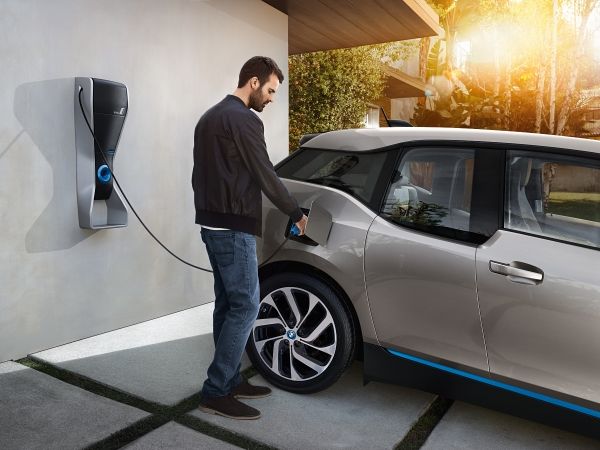Smart charging of electric vehicles (EVs) could cut the cost of integration into the UK power system by over £1 billion compared to standard charging, according to a new report that also found running an EV could be ten times cheaper than a conventional car.
WWF commissioned Vivid Economics to deliver a two-part report on the effect of bringing the UK’s proposed 2040 ban on the sale of new petrol and diesel vehicles ahead by ten years.
It found that the ‘2030 scenario’, which forecasts 20 million electric cars and vans on UK roads, could be delivered at lower cost than the 13 million under the ‘2040 scenario’. The report argues that this is due to the charging profile rather than the number of EVs, which it said is a more important factor.
“The smartness of the transition to electric vehicles will be the main factor determining how cost effective the transition is, not the speed of the transition,” it states.
Vivid utilised Imperial College’s Whole-electricity System Investment Model (WeSIM) to calculate the pattern of investment in, and operation of, electricity system resources that minimise the overall electricity system cost, taking into account reliability, carbon emissions and accurately representing the characteristics of the electricity system.
This would see the 2030 scenario delivered by an additional 1-2GW of onshore wind, 5-6GW of solar and 2-3GW of peaking plant compared to the 2040 alternative. However with a smart charging environment for drivers, the total capacity needed would fall by 15GW in 2030 – and 11GW fall could also be achieved in 2040.
Bringing the ban ahead by ten years to integrate EVs with smart charging could also result in a £1.6 billion reduction (42%) on the associated price tag compared to a 2040 date with standard charging, which remains £500 million less than a smart charging regime in 2040.
If vehicle-to-grid charging was also brought into play, the total cost of integrating electric vehicles in the 2030 smart scenario is only £2.1 billion per year – a £400 million saving relative to the £2.5 billion per year cost in the 2040 scenario with standard charging.
On top of the financial advantages to grid operators, Vivid Economics also argues such action would have a direct benefit to consumers, who could save substantial amounts on their annual car bill.
Under standard charging, an EV is said to cost an additional £175 per year to the owners’ electricity bill, falling to between £89.25-101.50 with smart and/or V2G charging. This compares to an average of more than £800 to run a petrol or diesel car or van today.
Other benefits of bringing the 2040 ban forward include a larger volume of second life batteries becoming available in the market for reuse as stationary storage, an activity already pursued by Nissan and Renault.
The report concludes with two main policy implications to have emerged from its findings, firstly stating that integration of EVs into the electricity system is manageable even under a 2030 phase out date for conventional cars and vans, as long as the opportunities from smart charging and V2G are realised.
The second recommendation would see further work conducted to develop greater understanding of batteries in order to increase their lifetimes and lower the costs associated with repurposing mobile units into stationary storage for homes and businesses.
Debate surges in Westminster
The report’s findings come as government action continues to progress on the issue of EVs with the Automated and Electric Vehicles Bill, which is nearing the end of its journey through Parliament, including provisions for only smart chargers to be sold in the UK.
However there remains some debate over the 2040 ban itself, particularly after National Grid’s EV lead Graeme Cooper came out in favour of a new 2030 date.
In addition, environment and business ministers Michael Gove and Greg Clark are said to be at odds with embattled transport secretary Chris Grayling, who reports claim is unwilling to include hybrid vehicles unable to travel at least 50 miles under the 2040 ban.
Last week, WWF’s head of climate and energy Gareth Redmond-King commented: “It is clear we need to move away from polluting petrol and diesel cars, but the UK government seems unable to clarify how it will define a zero-emission vehicle.
“What we need is clear action and bold leadership. Ministers must seize the opportunity to show world leading ambition ahead of the EV summit in September, by agreeing to phase out petrol and diesel vehicle sales altogether – including hybrids – by 2030.”
Further pressure has built on the issue today after a group of mayors and city leaders who together represent around 20 million people – including the Mayors of London, the West Midlands, Manchester, and Liverpool – called for the ban to be brought forward to 2030.
Final details of the ban are expected within the upcoming Road to Zero strategy from the Department for Transport, which is due out this summer.






